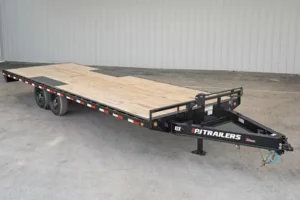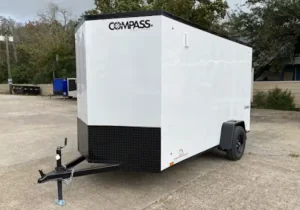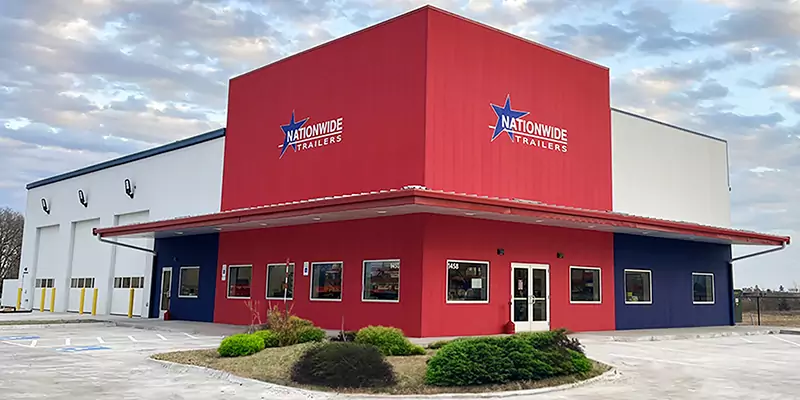Thinking about towing a trailer can be the gateway to exciting possibilities; from the burgeoning trends of recreational towing to professional hauling solutions, it’s clear that choosing the right trailer hitch is not just about compatibility but about ensuring a seamless tow experience. With a market overflowing with options, it’s easier than you think to end up with a mismatch that can lead to a slew of issues. Here’s a comprehensive guide to matching your equipment to your vehicle for a towing experience that’s both safe and stress-free.
The Backbone of Your Towing System: understanding Trailer Hitches
Behind every great towing setup is a reliable hitch. This unassuming piece of equipment varies widely in design and capabilities, catering to the massive demand for tow-ready vehicles. A crucial aspect of the hitch is its class, typically denoting the weight capacity it can handle, but there are several other types and features worth considering.
The Class Act
The standard bearer of hitch classification relies on weight categories—Class I, II, III, IV, and V—each correlating to a different range of towing capabilities. From the light-duty Class I for smaller loads- up to the heavyweight champion Class V, which can handle seriously sizeable loads, there’s a hitch for just about every vehicle and towing application.
Beyond the Basics: Specialized Hitches
For those towing larger, longer, and potentially heavier loads, weight distribution hitches become an essential tool in maintaining vehicle stability. They spread the load more evenly across the vehicle and trailer axles, mitigating the risk of swaying and improving control. In the world of big rigs, gooseneck and fifth wheel hitches reign supreme, offering unrivaled strength and flexibility.
Make It a Match: Choosing the Right Hitch for Your Vehicle
It’s not just about picking the most robust hitch; it’s about getting one that’s compatible with your vehicle’s setup. You’ll want harmony between the towing vehicle, towed equipment, and the trailer type you use, such as dump trailers.
Unpacking Your Vehicle’s Towing Prowess
Understanding your vehicle’s towing capacity is the first—and arguably most important—step. It’s not just about engine power; brakes, suspension, transmission cooling, and more play pivotal roles. This number is not a suggestion, it’s a hard limit for your vehicle that ensures both performance and safety.
Hitch Health Begins with Installation
Proper installation is where the rubber meets the road—literally. From ensuring the hitch’s bolts are torqued to the manufacturer’s specifications to verifying structural integrity, installation is not a step to be rushed. Professional installers ensure you leave with more than just a hitch; you go home with peace of mind.
Playing the Compatibility Game
Fitting the right hitch to your vehicle involves more than just numbers. You’ll need to consider the height at which the hitch sits, the receiver size, and the various hitch components that might affect tailgate operation, parking sensor functionality, and more. It’s a puzzle worth solving for the perfect towing setup.
Navigating the Minefield: Common Hitch Mismatch Mistakes
Choosing a trailer hitch isn’t the time for shortcuts. Here are the mistakes that could throw a hitch into your towing plans.
Overreaching and Underestimating
Neglecting to pair your towing needs with the correct hitch class could lead to disaster, such as equipment failure, brake malfunction, or suspension woes that require professional repair and maintenance. Always err on the side of caution and ensure you follow the ‘tongue weight’ and ‘gross trailer weight’ guidance for your hitch class.
The Safety Second Dilemma
Looking for a deal sometimes leads to skimping on necessary safety features. Anti-sway bars and other stabilizing mechanisms are not optional extras; they’re crucial in keeping everything in line during your tow.
Compatibility Compromises
It can be tempting to adapt your existing hitch for a new application, but not all hitches are one-size-fits-all. Choosing the right mount, be it a ball mount or a pintle hook, is vital for prudent towing.
Conclusion: Empowering Your Towing Experience
In the world of towing, the right equipment can mean the difference between a pleasant trip or a perilous one. Understanding the intricacies of hitches, and ensuring a careful selection and installation, ensures that you can haul with confidence. For those still unsure, leaning on the expertise of professional companies like Nationwide Trailers can provide invaluable guidance.
Choosing a trailer hitch is about more than just hooking something up to your vehicle—it’s about peace of mind and ensuring that your towing trip goes off without a hitch. With the myriad of options available, and technology advancing, the possibilities are endless. Take the time to match your hitch to your vehicle, choose quality, and look to the future. Only then can you be sure that your vehicle and your trailer will be as harmonious as the day is long.
For a deeper look into the world of hitches, or to find the perfect match for your towing needs, explore more with Nationwide Trailers and their extensive catalog of hitches and towing accessories for dump trailers and beyond. After all, your trailer’s only as good as the hitch that holds it. Make sure it’s the right one.



